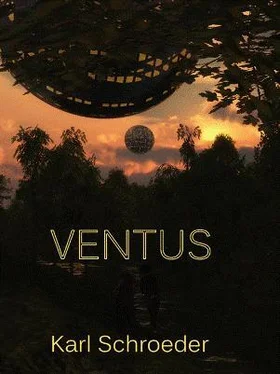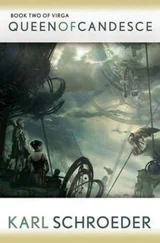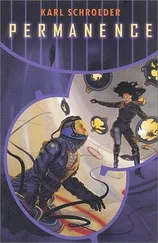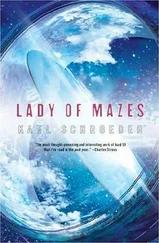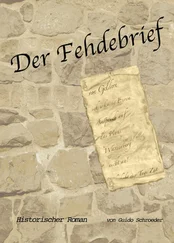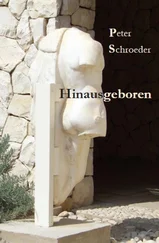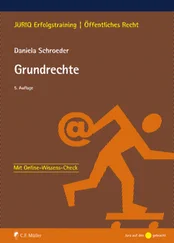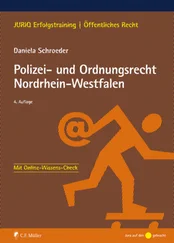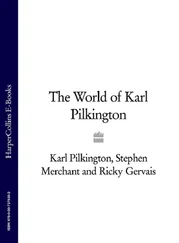Marya turned the picture over again. Sixty smiling academics stood on a set of stone steps. Nothing exciting about that, unless you knew the faces. But her heart was pounding again.
She put down the photo and reached for the other box. "Where is it..." There. Marya picked up one of the riot pictures.
PHOTOS.
"Serling, how many shops were there in Hamburg at the time that could make these chemical pictures?"
"Oh, let's see... six. Quite a few, given the times."
She held the riot picture up, squinting at it. It was too dim in here; she closed her eyes to view the inscape version in better light.
Above the word PHOTOS were the bottom serifs of some other letters. She couldn't prove it, but the missing word could very well be WALTHER.
"Serling, who took this group photo?"
"Lawrence Pakin. He was the man in charge of the Winds' psycholinguistics."
"What records do we have about him?"
"There is very little about him personally. He left behind a very large library of writings. Some of it is encrypted, but I have the rest if you'd like to—"
"Wait! Some is encrypted? How?"
"Using primitive but effective trapdoor functions. The public-key method he used makes it prohibitive to crack the code using brute force. Since we never discovered the key—"
"Did any of the thalience people use similar codes?"
"Most groups at that time did, Ms Mounce."
"Has anybody ever tried using one of the thalience keys to open Pakin's records?"
"I have no record of that. They assumed..." The serling's voice changed. "We assumed it was Pakin's personal code. There is nothing linking him to the thalience movement."
The serling's new voice was that of the Archipelagic Government. It must have been listening in. Marya was now talking to the oldest, most powerful human-based god in the galaxy. Unfazed, she asked, "Have you got any of the keys of the Hamburg thalience conspirators?"
"Yes. I assume you want to apply them to Pakin's files and see what we get?"
"Well, yeah ."
"I'm not sure where you're getting the idea that Pakin was connected with the thalience movement, but here goes," said the Government. "If the key works, you'll see the file contents in inscape."
Marya closed her eyes—
—And opened them on a vista of text, diagrams and charts— hundreds of pages flooding out of ancient time and into her hands.
Eyes closed, fists punching over her head, Marya danced about the room and sang a wordless song of triumph.
§
Axel hoped she was in the hotel. He took the steps three at a time, unable to wipe the grin off his face despite the way it alarmed the other tourists. He was going to savor this moment, he knew; this was the sort of discovery that made him feel like more than just a big dumb mercenary. He was more than hired muscle—ha!—and this would prove it to Marya.
So when the door slid aside, and he caught sight of her in mid-pace in the center of the room, he opened his mouth quickly and—
"I've got it!" they said simultaneously.
He stopped. She stopped.
"What?" he said.
"Huh?" she said.
"No really, I—" "I was right all along, you see, about the—"
Both stopped again.
This time, they watched each other warily for a moment, before Axel finally stepped inside, letting the door close, and said, "I know the secret of the Flaw!"
Marya crossed her arms. "Me too. It's thalience."
"No, it's DNA."
Another wary look.
"Ahem." Axel chose to be gracious. He found a deep couch and plunked himself on it. So she thought she'd found the secret, huh? Well, he'd hear her out then floor her with his revelation.
"Shoot," he said, with a magnanimous wave of his hand.
Marya retreated behind the suite's bar. She began to rummage in the cupboards there. "Well, this calls for champagne," she said. "The secret was staring us in the face all along. But nobody knew where to look!"
As she told him about her discovery of Pakin's secret encryption key, Axel's confidence began to waver. He had been so sure... No, he was right. He had the facts in his inscape files.
"...Pakin knew that the whole Ventus project was an attempt to actualize the semantic categories of the world as physical things. A tree knows it's a tree, a cloud that it's a cloud. This ran totally at odds to the way the Archipelagic Government was designed, of course; there, data is internalized in an inscape we all have mental access to. Ventus was an attempt to fulfill the Platonic-Pythagorean dream of essences behind appearances, right? But what Pakin realized was that doing this could limit the flexibility of the Winds. The terraforming might not succeed if the Winds limited themselves to a human-centric worldview. Since he was a convert to thalience already, it was a small step for him to introduce a new language-game to their programming—you see, that's why they became "advocates" for the physical objects they inhabit. The Ventus project was supposed to physically manifest a human-centric metaphysics, but what Pakin did was cause the Winds to create their own, inhuman metaphysic. In trying to terraform Ventus, they invented new ways of thought that worked better than the ones we'd given them. They stopped thinking like us. Which is why they won't talk to us!"
She beamed in triumph as she slammed a glass of champagne down in front of him.
"Well." He picked up the glass and regarded it. "They talked to Turcaret, though."
"So he claimed."
"Well." He rallied. "But they could talk to him; I found out how."
She raised an eyebrow. "Do tell?"
Ooh, there she went again—the smug academic amused at the antics of the soldier of fortune. Axel smiled brittley at her and took a swig of champagne without tasting it. He put the glass down, and said, "Turcaret's DNA is significantly different from the Ventus standard."
"Really?" she indulged.
"Well, first off, he has some sort of extra neural wiring in his auditory/visual lobes in pretty much the same places as Armiger put his into Jordan. It's a kind of biological radio. Secondly, in all other respects he's an archaic—his DNA matches the Human Genome Project norm established in 2013."
"Meaning?"
"You and I don't match that norm. Nobody does nowadays—not even Jordan. We all have DNA that matches the 2219 norm or later—with all the dangerous recessive traits removed. Ancient diseases like..." he groped for an example. "Well, I don't know what they were, but they were awful, and they were still there in the archaic norm. The point is, Turcaret matches that norm, while according to your institute's random studies of modern Ventusians, everybody else matches the 2219 norm—but none of the later iterations."
Marya said nothing, but curled up in a chair opposite and sipped at her champagne. She tilted the glass to indicate he should continue.
"Turcaret represents the DNA norm at the time that the first colony ship was sent to Ventus," said Axel. "It was sent out in 2095; that's just before the Hamburg insurrection, when most of the Ventus records were destroyed. But they knew the terraforming was working then, and a few of the original members of the project participated in the colony effort. I checked and there's records of "genetic surgery" being done on all the colonists before they went out. Everybody always assumed that was to remove genetic diseases and deficiencies; but Turcaret's DNA shows no alterations from the archaic except for this one neural enhancement. See what I'm saying?"
She put down the glass. "The first colonists were genetically modified to be able to speak to the Winds."
He nodded vigorously. "Whereas the next—and it was the last—wave of colonists didn't set out until a hundred years later, after most of the original Ventus project records had been lost and all its originators were dead. Those colonists had DNA that matched the 2219 norm, like Jordan and the majority of the population on Ventus now."
Читать дальше
